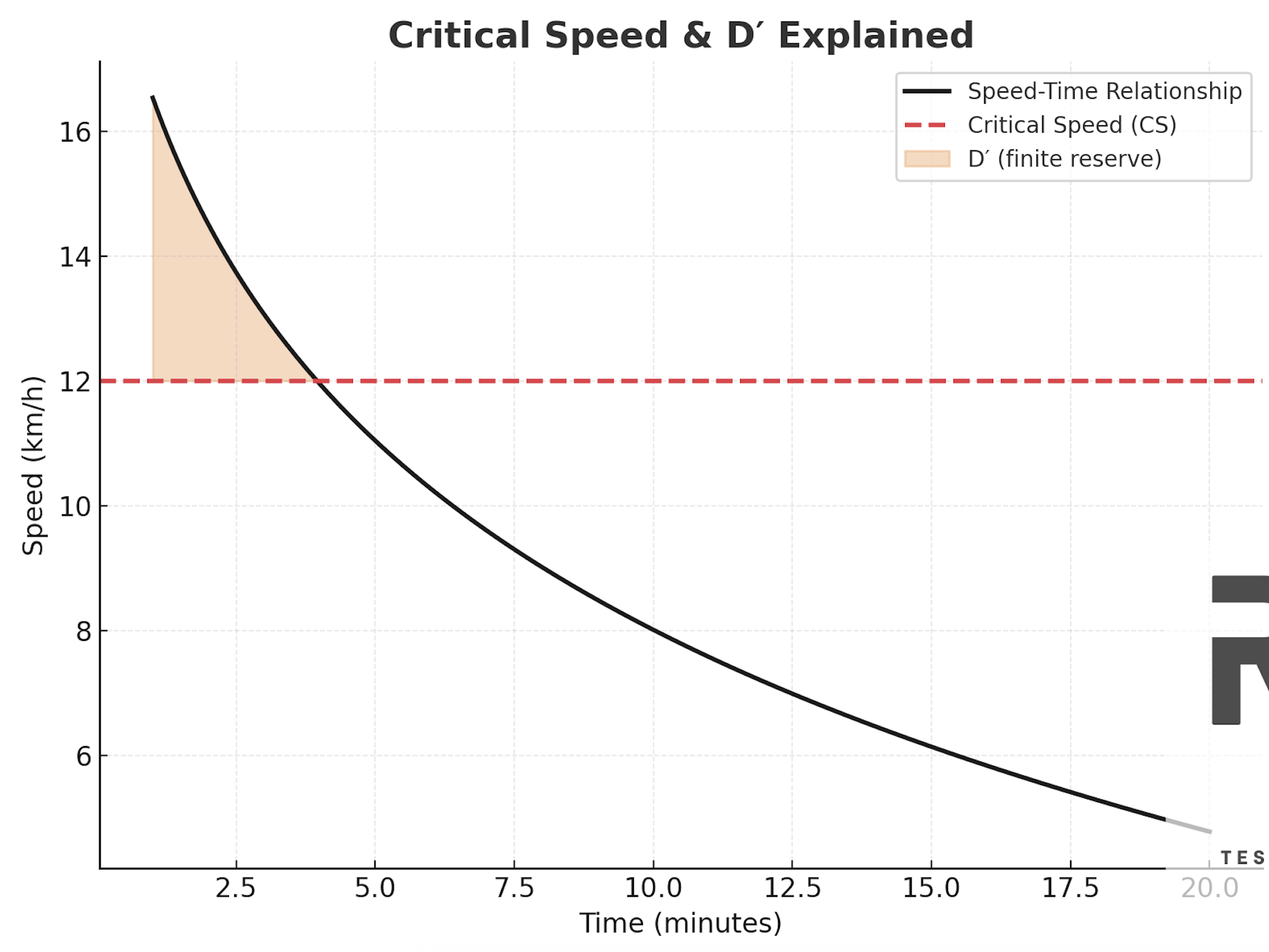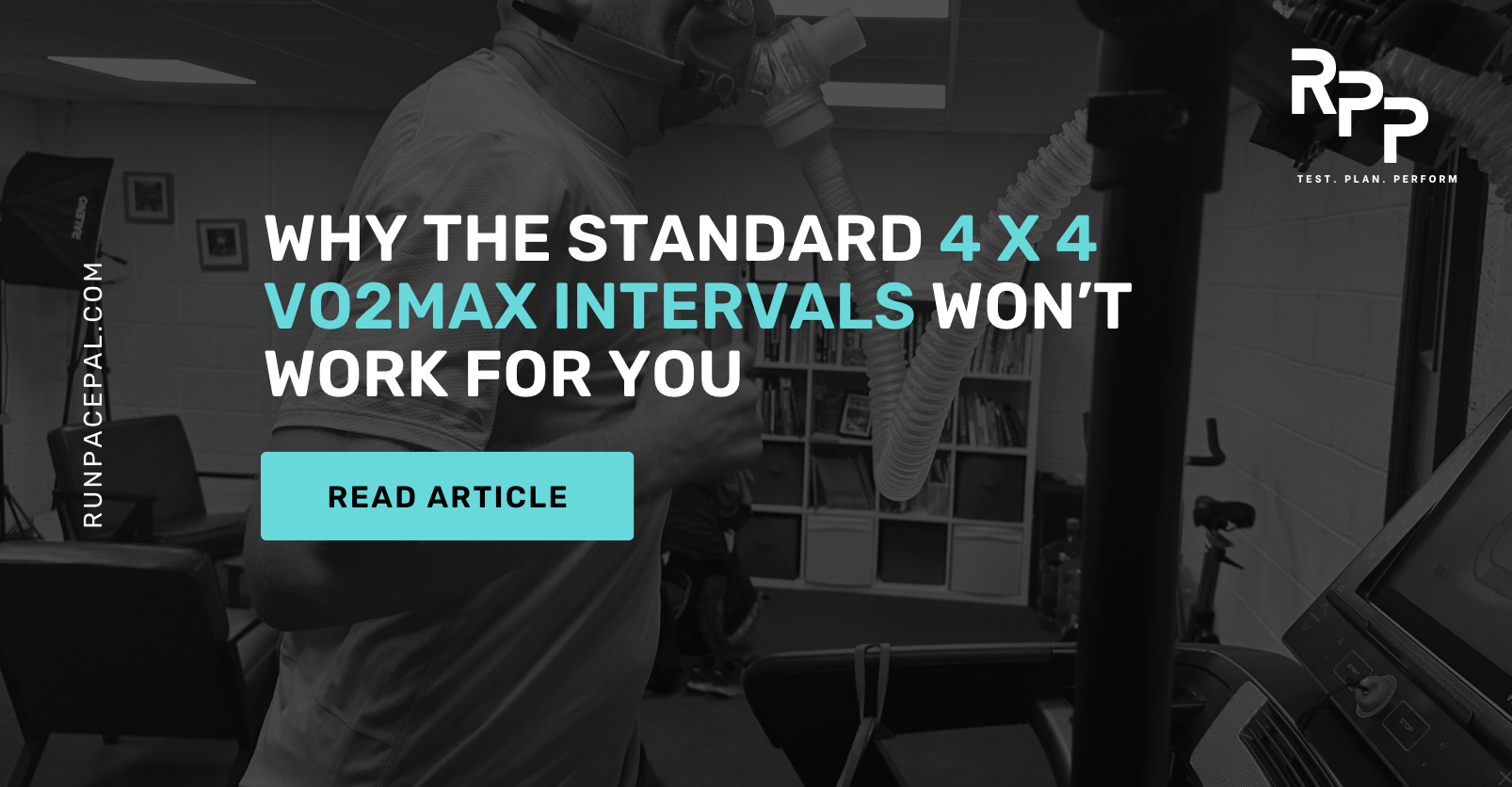Critical Speed: The Metric Every Runner and HYROX Athlete Should Know
Most runners still train using pace charts, generic race predictors, or "run by feel." The problem? Those methods ignore your physiology. Critical Speed (CS) is one of the most powerful — and overlooked — ways to predict endurance performance, design interval sessions, and pace races with precision.
In this article, we'll break down what CS is, why it matters for both runners and HYROX athletes, and how you can test it for yourself today.
🔬 What is Critical Speed?
Critical Speed represents the fastest pace you can hold without fatiguing rapidly. It's closely related to your lactate threshold (LT2) and gives a reliable marker for sustainable performance.
- Run slower than CS → you can last a long time
- Run at CS → you're near your "red line"
- Run faster than CS → you're dipping into a finite energy reserve known as D′ (D prime)
Think of it like your "durability marker" — your car's top cruising speed before the fuel gauge starts plummeting.
 The relationship between Critical Speed (CS) and D' (D-prime). The shaded area represents your finite anaerobic reserve above CS.
The relationship between Critical Speed (CS) and D' (D-prime). The shaded area represents your finite anaerobic reserve above CS.
🏃 Why Does CS Matter for Athletes?
Performance Benefits
Pacing: Predict how long you can sustain a given pace (critical for 5K/10K races and HYROX runs).
Interval Design: Build workouts that stress the right systems (using D′ for reps/recovery).
Race Prediction: More accurate than max HR or generic formulas.
Durability Training: Push your CS higher to extend endurance.
For HYROX athletes, CS is a game-changer: knowing your sustainable running pace between stations keeps you from blowing up after sled pushes or wall balls.
The Science Behind Critical Speed
Critical Speed isn't just another training metric—it's rooted in decades of exercise physiology research. The concept emerged from the power-duration relationship first described in cycling, then adapted for running.
When you run faster than your Critical Speed, you're drawing from your D′ (D-prime)—a finite pool of energy above your aerobic threshold. Think of D′ as your "anaerobic battery":
- Small D′: You fatigue quickly above CS but can maintain CS for hours
- Large D′: You can sustain higher speeds for longer bursts but may have a lower CS
- Optimal balance: Maximizes both sustainable pace and finishing kick
📊 How to Test Your Critical Speed
Traditionally, CS required lab testing with lactate analyzers and repeated time trials. That's where Run Pace Pal simplifies things:
- Use the Critical Speed Test (3 x time trials) inside the app.
- Get your CS, tempo, and threshold zones instantly.
- See actionable workouts built around your result — no spreadsheets, no guesswork.
👉 Try it free today with the Critical Speed Calculator.
🎯 Practical Applications
For Distance Runners
5K Racing: Run the first 3K at 102-105% CS, then use your D′ for the final kick.
10K Strategy: Target 100-102% CS for the middle 6K, save D′ for tactical moves.
Half Marathon Pacing: Stay at 95-98% CS to preserve energy for negative splits.
For HYROX Athletes
Running Segments: Use 90-95% CS between functional stations to maintain consistent splits.
Recovery Running: Drop to 80-85% CS after high-intensity stations (sled push, burpees).
Final 1K: Deploy remaining D′ for a strong finish if pacing was conservative.
⚡ Going Deeper: When to Consider Lab Testing
Field tests are powerful and highly practical. But if you want gold-standard precision — especially if you're an advanced athlete or working with a coach — a lactate/VO₂max test will map your physiology in even greater detail.
Advanced Testing Options
Lactate Step Tests → pinpoints LT1 and LT2 with blood lactate measurements
VO₂max Testing → measures your aerobic ceiling and running economy
Metabolic Consultancy → interpretation + personalized training plan support
👉 Book your test here: boxnutrition.co.uk/book-online
Professional testing provides additional insights like: - Running economy at different speeds - Lactate clearance rates during recovery - VO₂ kinetics for interval prescription - Substrate utilization (fat vs. carbohydrate burning)
🏋️ Training with Critical Speed
Threshold Sessions
Classic CS Intervals: 4-6 x 5-8 minutes at 100% CS with 2-3 minute recoveries
Broken CS: 2 x (3 x 3 minutes) at 102% CS with 90s between reps, 5 minutes between sets
Tempo Builds: 20-30 minutes starting at 90% CS, building to 105% CS over final 5 minutes
D′ Development
Short Intervals: 8-12 x 400m at 110-120% CS with equal recovery
Mixed Sessions: 3 x (200m fast, 400m at CS, 200m fast) with 3-minute recoveries
Depletion Training: Run to exhaustion at 105% CS, recover, repeat
Recovery and Aerobic Development
Long Runs: 60-90 minutes at 70-80% CS for aerobic base building
Recovery Runs: 20-40 minutes at 60-70% CS on easy days
Zone 2 Sessions: 45-60 minutes at 75-85% CS for metabolic efficiency
✅ Key Takeaways
- Critical Speed = your "red line" pace for endurance events
- It predicts performance, builds better intervals, and prevents overtraining
- D′ (D-prime) represents your finite energy reserve above CS
- Field testing provides 95% of the insights at a fraction of the cost
- Integration with training zones maximizes both aerobic and anaerobic development
Ready to Test Your Critical Speed?
Stop guessing. Start training with precision.
Our Critical Speed Calculator gives you laboratory-grade results in 20 minutes, with instant training zones and personalized workout recommendations.
No lab fees. No blood draws. Just precise, actionable data.
Want to take your testing to the next level? Professional lactate and VO₂max testing provides even deeper physiological insights for serious athletes and coaches.



